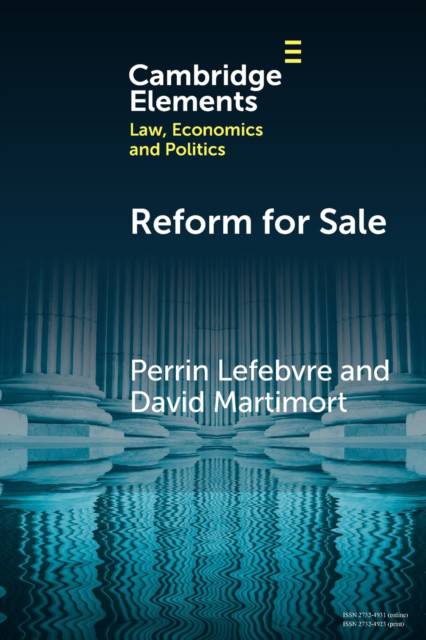
- Afhalen na 1 uur in een winkel met voorraad
- Gratis thuislevering in België vanaf € 30
- Ruim aanbod met 7 miljoen producten
- Afhalen na 1 uur in een winkel met voorraad
- Gratis thuislevering in België vanaf € 30
- Ruim aanbod met 7 miljoen producten
Zoeken
€ 31,95
+ 63 punten
Omschrijving
Lobbying competition is viewed as a delegated common agency game under moral hazard. Several interest groups try to influence a policy-maker who exerts effort to increase the probability that a reform be implemented. With no restriction on the space of contribution schedules, all equilibria perfectly reflect the principals' preferences over alternatives. As a result, lobbying competition reaches efficiency. Unfortunately, such equilibria require that the policy-maker pays an interest group when the latter is hurt by the reform. When payments remain non-negative, inducing effort requires leaving a moral hazard rent to the decision maker. Contributions schedules no longer reflect the principals' preferences, and the unique equilibrium is inefficient. Free-riding across congruent groups arises and the set of groups active at equilibrium is endogenously derived. Allocative efficiency and redistribution of the aggregate surplus are linked altogether and both depend on the set of active principals, as well as on the group size.
Specificaties
Betrokkenen
- Auteur(s):
- Uitgeverij:
Inhoud
- Aantal bladzijden:
- 75
- Taal:
- Engels
- Reeks:
Eigenschappen
- Productcode (EAN):
- 9781009285582
- Verschijningsdatum:
- 2/03/2023
- Uitvoering:
- Paperback
- Formaat:
- Trade paperback (VS)
- Afmetingen:
- 152 mm x 229 mm
- Gewicht:
- 127 g

Alleen bij Standaard Boekhandel
+ 63 punten op je klantenkaart van Standaard Boekhandel
Beoordelingen
We publiceren alleen reviews die voldoen aan de voorwaarden voor reviews. Bekijk onze voorwaarden voor reviews.











